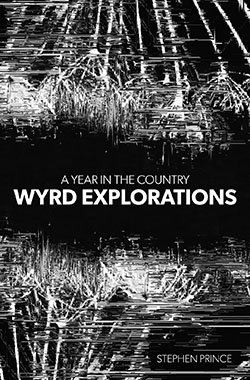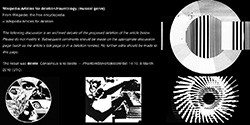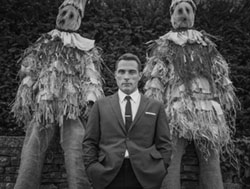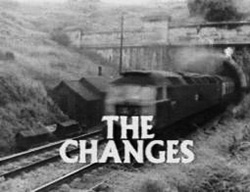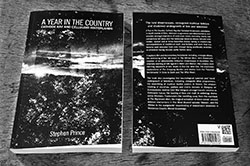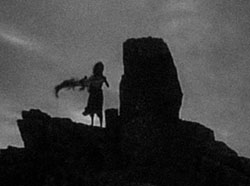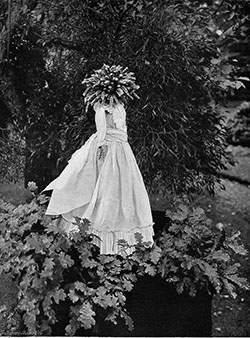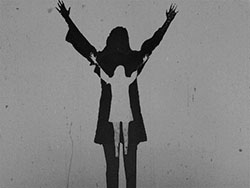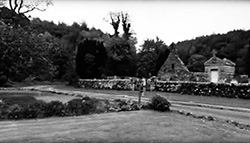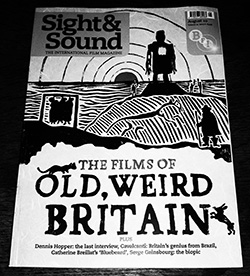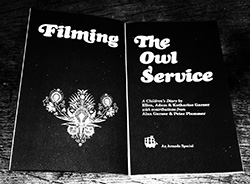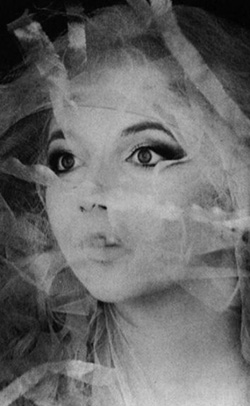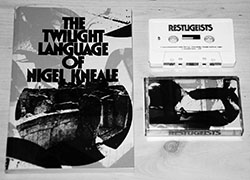
Trails and Influences: Electronic Ether. Case #27/52.
This has been on my mind as something that I “must peruse further” for a fair while now…
It’s an early 1970s film that shows a snapshot of a family (a father, two sons and two daughters) who live in an isolated woodland English house, whose ways of living and lives have a sense of drawing from the past while living in the present; water is drawn by bucket from a well, if there is any mains electricity it’s not to be seen, they run and hand build old steam engines, the men dress like working class labourers from earlier in the 20th century (all suit jackets and hats for hard manual/engineering work), play hand-pumped organs and pianos out in the open…
I’ve tended to think of it as a sort of travelling companion with the film Akenfield, which is more a recreated but based on the stories of rural living piece of work than documentary representation but which also seems to represent some kind of early 1970s attempt to capture/recapture a disappearing world/pastoral idyll. Both seem to be in part celluloid flickers that capture a nations then (ongoing?) yearning for an imagined idyll away from the pressures and social unrest of the time…
…although in a way it’s nearer to Ben Rivers Two Years At Sea (see Day #62/365), in that it’s more a largely unarrated picturesque document of lives that have stepped to one side of “the grid” that just records its subjects lives and lets that recording tell its and their stories.
And like that film, The Moon And The Sledgehammer is a fascinating snapshot of these very particular ways of life. It feels in a way and in spirit not a million miles from an anthropological study of a group of people in some far flung tropical forest who have been left alone and apart from the advances of civilisation…
But that’s not quite the case here. The family’s life is a curious mixture of the old and the modern; there are glimpses here and there of modern day consumables, even if only glimpses…
…there is a bottle of washing up liquid that is used at the kitchen sink, a bag of Mothers Pride bread (in one of those waxed bags that now seem so evocative of another time and place). Their land seems to be littered with collapsed and foraged automobiles, from buses to cars (and which curiously are rarely mentioned or focused on in the film)…
…although there seems to have been a selective choice to have stopped moving with technological advances at some not quite defineable time somewhere between the earlier twentieth century and about 1962 (a curious looking wheeled “dirty diesel” stand alone engine is used at one time to power their equipment). Scattered around are layers of still functioning, sometimes nurtured small scale industrial equipment of a particular type and vintage that today you may only see as part of historically semi-preseverved quarry workings and the like.
Although it has a touch or more of dirt under it’s fingernails, it’s a very picturesque view of their lives, although it made me wander about how they actually fund the way they live and how they came to live how they do. Nobody is shown as having any kind of gainful employment in any traditional earning sense.
There is the occasional brief mention of the sons doing mechanical/electrical work away from the family home but very little mention of the history of the family. Apart from a police escorted trip down country lanes on a black-smoke puffing steam engine amongst the Morris Minors, we only see the family in the immediate vicininty and centre of their world…
…and I also wander what happened to the family after the film was made. There is a reasonable amount of conflict and even dysfunction shown in the film, a yearning in some family members to break free from their immediate orbit…
…having said all of which, there is also an accompanying film called Behind The Moon And The The Sledgehammer which may explain more… but contrarily I’m not sure if I want to know too much more about the film or how it was made. Part of me quite likes it existing just as a pocket of time, place and way of being all unto itself.
In a way I feel that you need to be a little wary of purely being a voyeuristic observer of such lifestyles of others (and otherly lifestyles). The Moon And The Sledgehammer walks that tightrope in a reasonably respectful manner. The family play up/mug for the camera here and there but there’s a sense that generally they want to and are overall enjoying the attention (at least in four-fifths of the family).
This is an entertaining, playful, piece of film making, a stepping into another world for just a moment or two.
Also, at the time of writing you can currently take that step for less than the price of a bakers dozen or so of teacakes (which seems to be a current form of comparative currency around these parts… see Day #199/365 for more on such things). Thanks to Mr Alex Gallagher and the good, well, folk at Folk Radio UK for their signpost towards it’s new home and seeding in the ether…
Less than the price of a number of teacakes: peruse it’s celluloid flickerings and sparks in the ether.
Or a somewhat gratis snippet of it’s currant bun here and here.
Folk Radio UK. The Moon And The Sledgehammer.














